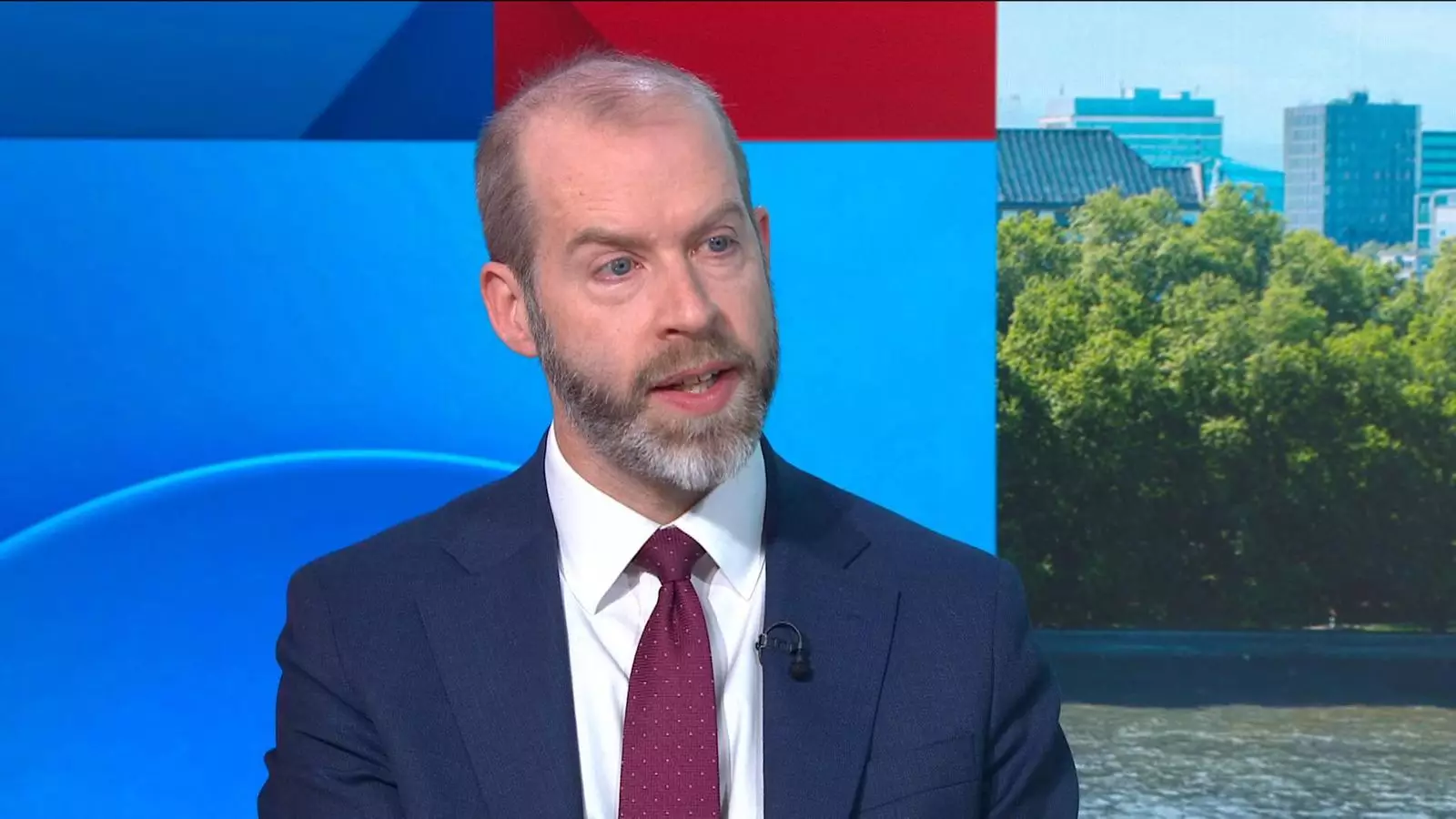The chaos surrounding British Steel has become emblematic of a far deeper issue entrenched in the UK’s economic policy. Recent events have thrust the fragility of the steel sector into the limelight, raising serious questions about foreign ownership in sensitive industries. The business secretary’s outright dismissal of any future Chinese involvement in this pivotal sector reflects an urgent re-evaluation of how foreign investments are intertwined with national security and economic stability. The crisis reached a boiling point when the government was compelled to intervene and maintain operations at the Scunthorpe plant, owned by China’s Jingye, amidst failing negotiations for raw materials. One can’t help but wonder if this debacle was poorly anticipated during the previous administration, revealing not just complacency but a lack of foresight regarding the future of British industry.
The Consequences of Complacency
Complacency has a peculiar way of manifesting in policy decisions and corporate dealings. In 2020, when Jingye acquired British Steel’s Scunthorpe plant, it might have seemed like a lifeline for a beleaguered industry. Yet, the recent freezing of raw material orders by Jingye illustrates a failure to understand the broader implications of such foreign ownership. At a moment of critical transition, where industries are grappling with new technologies and market demands, entrusting sensitive sectors like steel to non-native companies is akin to handing the keys to your house to a stranger. The Business Secretary Jonathan Reynolds candidly acknowledged that in light of recent developments, a high level of distrust now clouds Chinese investments in the UK economy. His statements underscore a growing sentiment among policymakers that certain industries should strictly remain within the purview of national interests.
Emergency Legislation: A Short-Term Fix
The rushed passage of the Steel Industry (Special Measures) Bill exemplifies a knee-jerk policy response that fails to address the root cause of the issue—namely, the precarious state of the industry itself. While the bill grants the government extraordinary powers to intervene and keep the plant operational, it does little to foster a sustainable solution. By merely preserving the status quo, the government has effectively sidestepped the larger question: how do we revitalize the steel sector in a manner that prioritizes innovation and worker stability? The legislation might protect jobs for the time being, but it also risks creating a scenario where the taxpaying public subsidizes a foreign-owned enterprise that shows disinterest in the long-term health of the UK steel market.
A Glimpse Toward Public Ownership
Public ownership has resurfaced as a potential remedy, a route that appears increasingly likely given the current landscape. However, it’s imperative to consider whether this direction is fueled by desperation or genuine intent to rebuild the steel sector on a solid foundation. As Reynolds noted, public ownership remains an option, but is it truly the best path forward? Transitioning to new steel technologies entails massive capital investments and visionary leadership—traits that may not align with the bureaucratic nature of public ownership. While it’s understandable to seek a safety net for the industry, it’s equally critical to ensure that such a move doesn’t trap the sector in a cycle of inefficiency and dependency.
The Shadow of Private Partnerships
In an interesting twist, the business secretary alludes to the possibility of a commercial private sector partner alongside public ownership. This duality creates a tension that may hinder progress rather than foster it. On one side, the intent to attract private investments is a noble goal; however, private entities prioritize profit, often at the expense of long-term sustainability. Can we genuinely trust private partnerships to champion the values of resilience and community that the steel sector desperately requires? It’s doubtful that an investor focused solely on quarterly earnings will have the patience or understanding to navigate the intricate challenges posed by modern steel production.
A Political Circus
Meanwhile, the political arena continues to morph into a circus, with rival parties like the Conservatives labeling the government’s emergency bill as a “botched nationalization.” The irony is thick; in condemning the response, the opposition reveals their own historical missteps regarding national interests. This zealous finger-pointing only obscures the fact that the steel industry is at a crossroads—one that demands cooperative dialogue rather than partisan sniping. The reality is that while the government maneuvers to maintain operational continuity, they must also engage in sincere debate over the future role of foreign investment in pivotal industrial sectors.
The crisis surrounding British Steel unveils a complex web of economic vulnerability and political miscalculation. As we face the specter of ownership in sensitive industries, let us wrestle with these questions earnestly and without the baggage of ideological stubbornness. The stakes are too high to settle for anything less than rigorous debate and action that prioritizes the nation’s industrial future.


Leave a Reply